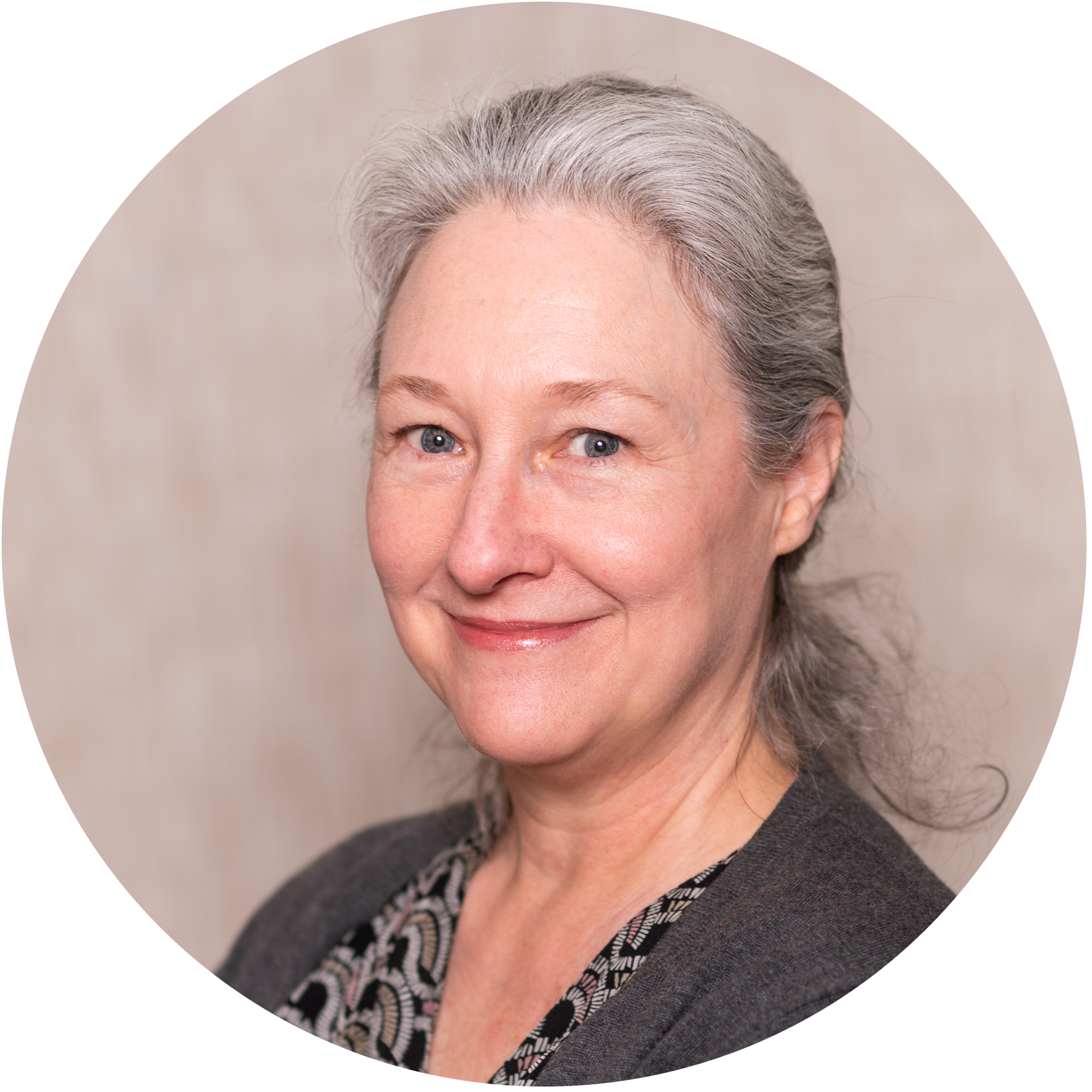How Visionary Leaders Inspire

Visionaries inspire with the force of their optimistic view of the future. Whether it’s “banker to the poor” Muhammad Yunus proving that poverty can be eradicated or Amazon founder Jeff Bezos pioneering e-commerce and then setting his sights on space travel, these remarkable people have the passion and drive to execute their purpose, as they see it, and inspire others to give their all helping them accomplish it. Rather than proceed cautiously, these leaders roll up their sleeves to realize their goals – no matter how impractical or idealistic they may at first seem – inspiring others to contribute exactly the talents they need.
1. Visionary Leaders Solve Big Problems
Nobel prize—winning economist Muhammad Yunus set out to solve no less a problem than the eradication of poverty. His vision was to extend credit to the poor. By including them in markets, he reasoned, they can innovate their own way out of poverty, especially now that digital tools put them in more direct contact with buyers. Though some dispute the success of microloans (there are usurious microlenders out there), the consensus is that microcredit and microfunding demonstrate great potential for expanding markets.
Yunus also sought to develop a socially conscious way of doing business that is still profitable but with a socially beneficial purpose. In Building Social Business, he advocates for social benefit companies (also known as B Corporations), organized as viable, profitable businesses, but businesses with a primary purpose to improve society while also being ecologically sensitive. Many market-leading companies like Patagonia, Ben & Jerry’s and Allbirds followed his lead and are social benefit corporations. The Business Development Bank of Canada invests in B Corp start-ups.
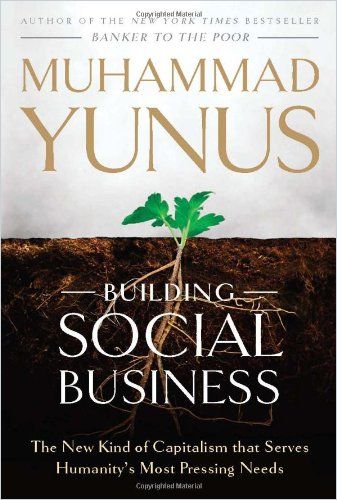
Yunus listened to the poor, but to achieve his aims at scale, he proved a visionary leader must also be a brilliant persuader. He hit upon the idea for microcredit but needed to change banking law in Bangladesh to realize his goal, so he became a lobbyist. Later, when he wanted to expand into various markets, he talked high-profile companies like Danone and BASF into socially-driven partnerships that also made a profit, although that was not their primary motivation.
Here is an important lesson for others interested in starting social businesses: There’s a huge advantage to starting small.
Muhammad Yunus
In Uberpreneurs, authors Peter Andrews and Fiona Wood focus on single leaders who created spectacular change in different markets, including Yunus, Oprah Winfrey and Jeff Bezos, among other luminaries.

Bezos left his secure Wall Street executive job to start Amazon and innovate online retail. He did not start or stay small. Bezos emphasized customer service – getting items to customers as quickly as possible. He innovated partnerships and affiliate programs to fully exploit the online marketplace he invented. When e-books looked like a potential threat to his primary book business, Amazon pioneered e-readers. By 1999, Amazon was publicly traded and hit over $1 billion in sales.
Not one of these merchants of light invented the technology on which their innovations were based. But each of them saw and grasped the future, before the rest of us knew it was there.
Peter Andrews and Fiona Wood
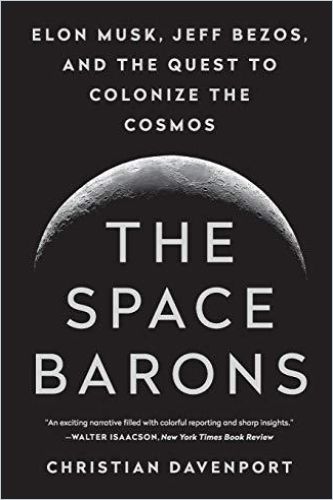
In The Space Barons, author Christian Davenport describes how Bezos and SpaceX CEO Elon Musk – visionary business leaders here on Earth – now pioneer private space travel through their aerospace companies, where they inspire their fiercely dedicated employees to keep pushing the innovation envelope. By virtue of their vision, these leaders inspire useful lateral innovations all the time. In All In, Robert Bruce Shaw studies extraordinary leaders. Learn more about the successful obsessions of leaders like Jeff Bezos and Elon Musk in this Journal interview with Shaw:
2. Visionary Leaders Inspire Imitation
Yunus’s statistics of money loaned and repaid speak to the success of his project. His idea inspired others to adapt his concept to start-up microfunding. In “Lessons from Microfinance for Venture Capital,” Anjney Midha writes how Grameen Bank inspired him to create the Dorm Room Fund to make small investments in worthy founders at universities while providing them with a network of their peers.

Midha wanted to give good ideas the seed capital they needed, no matter the founder’s contacts. The fund made 61 investments in two years. In Give Work, Leila Janah, CEO of digital jobs platform Samasource, writes how she expanded on the idea of microcredit and microfinance to create “microwork” that connects the poor to digital jobs.
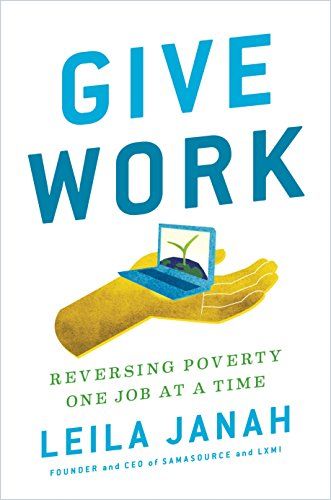
Authors David Bornstein and Susan Davis focus on the inspirational stories of founders set on changing the world for good in Social Entrepreneurship. These leaders develop a compelling “theory of change” that embodies their principles and their purpose and then build social benefit companies to execute their vision.
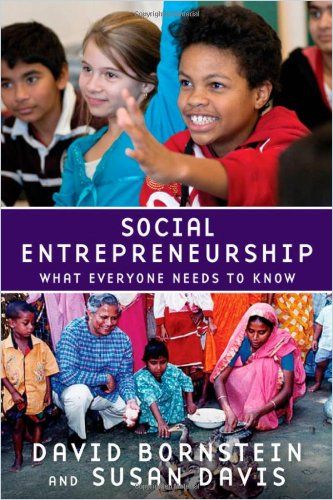
These founders inspire others with their optimism in the face of what may look like chaos or despair. That optimism, coupled with the determination to do good, inspires many more dedicated people to follow their lead. And, after all, imitation is the sincerest form of flattery.

3. Visionary Leaders Trust and Are Trustworthy
Restaurateur and visionary leader Chef Jose Andres inspires by doing. He refused to sit by helplessly watching after the 2010 earthquake devastated Haiti. Instead, he founded World Central Kitchen with the mission to feed those in disaster-ravaged areas, and to do it according to his vision of what worked best: revitalizing existing businesses and communities from the ground up and working alongside them to feed those in immediate need.

Andres outlines his methods in We Fed an Island, an account of his time in Puerto Rico after Hurricane Maria. He and World Central Kitchen immediately began coordinating getting meals to islanders who lost their homes. People who want to help after disaster know they can trust Andres to turn their donations into nourishment that gets to the people who need it most.
There’s something fundamental about food; about preparing, cooking and eating together. It’s what binds us; it’s how we build community.
Jose Andres
In the process of standing up destroyed communities so they can begin to rebuild, Andres redefined what disaster relief and crisis management looks like, not only after natural disaster, but also COVID-19 lockdowns and now, even war; World Central Kitchen serves approximately 380,000 meals daily to Ukrainian refugees. No matter where he is, Andres inspires others to go the extra mile and do what needs to be done, with humility and a recognition of everyone’s common humanity. Andres trusts the people of devastated communities to know best what they need locally. He trusts his organization to navigate the unpredictability of the situations they decide to enter and get operational. He inspires trust by showing up no matter what.
We don’t parachute in from the outside and say alright, we have all the answers. We come into a community and say we’re here to help. What can we do side by side with you?
Nate Mook, CEO World Central Kitchen
Learn more about trust (and how trusting your colleagues inspires them) in our interview with Stephen M.R. Covey:
4. Visionary Leaders Empower Their People
Hit television series creator Shonda Rhimes rode her first hit Grey’s Anatomy to lucrative multi-project deals with network partner ABC. In 2017, she signed a deal for her company, Shondaland, to produce streaming content for Netflix. As she recounts to Marc Andreessen on his a16z podcast, after her first show, Rhimes knew she could create blockbusters but she didn’t know if she could scale her enterprise. Industry watchers estimate she creates about $20 million worth of television every nine or so days. She knows she can’t be everywhere, doing everything, so she picks her priorities and empowers her people to take on responsibility.
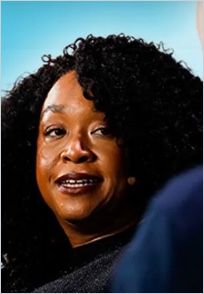
Shonda Rhimes on How to Create Stories (and Products) People Want
Andreessen HorowitzTo avoid being a “one-hit wonder,” Rhimes early began setting up a business infrastructure that supported developing new ideas and incubating talent. She chose colleagues she’d worked with for years on Grey’s Anatomy and put them in charge of other company productions. Her leadership team keeps her informed daily. This frees her time for working with writers, creating the show magic that keeps viewers watching. Rhimes knows that magic takes a team.
5. Visionary Leaders Model Open Communication
Kronos CEO Aron Ain relies on the best people at all levels. The company’s ethos is “work inspired” and it rests on the values of “character, competence and collaboration.” Kronos is frequently noted on “best-employer” lists. By focusing on humility, trust and gratitude, Ain embraces “un-leading.” In this way, he inspires Kronos employees to be honest with him about their concerns.
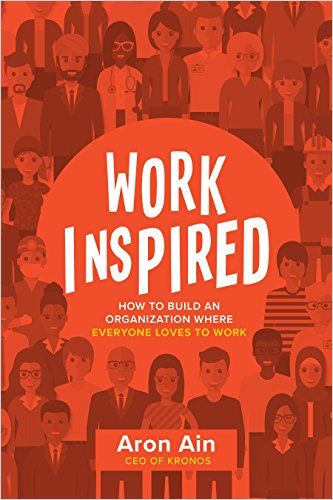
To foster trust in company leadership he involves employees in corporate strategizing. Ain modestly refers to himself as the “kibitzer-in-chief” because he makes it his business to not only know his employees for the jobs they do, but to know them and respect them as whole people. He asks open-ended questions and listens to their suggestions. Visionary leaders know good ideas can come from anywhere, often from where they least expect them.
Galvanize people to take risks and present new ideas. Invest in those ideas, and execute on them. Be bold. Take risks. Experiment.
Aron Ain
According to a Bain study of inspiration, inspiring leaders are remarkably diverse but they lead in four areas: “developing inner resources, connecting with others, leading the team, and setting the tone.” Of 33 identified contributing characteristics, the one employees most often said they valued and sought to improve within themselves is “centeredness,” the art of being mindfully present and engaged no matter what’s going on around you. Employees perceived this attribute helped leaders stay calm in the face of stressful circumstances, listen fully and with empathy, and make rational decisions.
Learn how meditation can help you develop a sense of centeredness in Sara Kupfer’s Journal interview with author Giovanni Dienstmann.
Develop your own vision:





